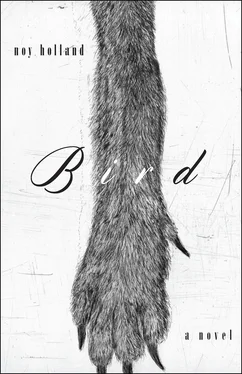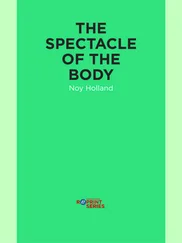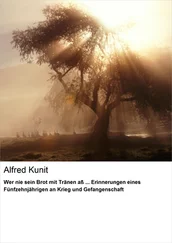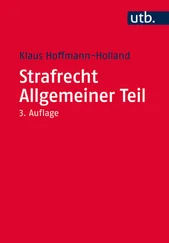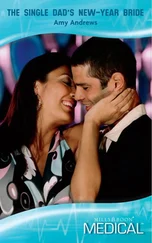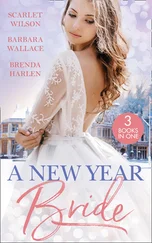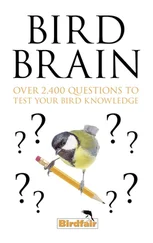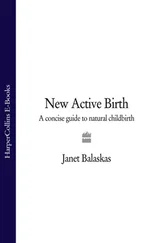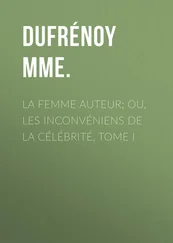Bird’s nearer neighbor tends to his garbage, sets his barrel of plastic aflame. Early at his chores, wheezing, standing fast in the acrid cloud — a man doing his part for the planet. Bird waves hello and curses him. Fondler of children, petty thief, a giant with a failing heart.
Fail better, Bird thinks. Hully up.
Mothers all over the country are waiting in robes for the school bus. Stirring oatmeal, scrubbing at knees. Rousing their gray-eyed heroes, fast runners, killers of men. Whilst.
Nobody gets to say whilst anymore.
The immortals are paring their fingernails whilst, landward, the great seas surge. The mountains burst and shudder.
Bird shuts her eyes and falls backwards. Whenever she shuts her eyes, she falls backwards, listening for her mother: I am right here.
Sparrows rustle in the wine-dark maple. Steam is lifting away from the road.
Here it comes: the school bus shrilling up the hill. The chain wound around the axle picks out its tinkling song. The bus grinds to a stop and the bus driver smiles — a pitying, reproachful look: Bird is in her mother’s milk-sopped bathrobe still, and barefoot, and her boy is nowhere to be seen.
But Bird can picture him: thudding in a rush, his shoes undone, down the pitch of the narrow stairs. She draws her robe across her chest and shuts her eyes. Bird stands in the road falling backward until the bus revs to roll away.
Hey! She throws her hands up. Her robe swings open, the color of a different day.
“Here he comes!” she yells, and he does — papers, cap, forbidden cards flapping out of his backpack. Toothasaurus. Cotton top. He’s got his shirt a button away from being buttoned right.
“Farewell, my prince,” she whispers.
Her boy climbs on and trots down the aisle, his quarrel with school forgotten.
Bird keeps standing in the road in her bathrobe in the doorway of the bus folded open — in the surge of heat, the smell of it, nothing smells like a school bus, nor a baby’s head, nor a Band-Aid. Thank you, Band-Aid, Bird thinks, and backs off.
She waves at the bus until it tops the next hill and the last patch of yellow slides away.
She left theteapot on and now the windows are steamed.
The baby’s shrieking. Her papa is singing in the shower upstairs.
He is closing in on the phase where he talks to himself, pulling on his shoes. Same shoes. He has bought the same shoes for three hundred years.
Meaning what? Bird thinks.
As in what?
Bird pours his coffee, nice of her, it will be just right to chug.
The day keeps changing: rain: and sun: and shadow. She should have sent her boy off in his frog boots. She sent him out fed, what a mama. Belly full of groats and a cracker.
The dog is licking at the baby’s sleeper, the sack Bird puts her in. A good dog. If only she didn’t shit, Bird thinks. If only she fed herself.
The dog turns to feasting on the mealy foam that leaks out of her bed. Her tail flares up against the woodstove.
Better build a fence around that woodstove, Bird thinks, and that awful rhyme about the ladybird comes around again.
Doll Doll comes around again, too. Doll Doll with her beautiful baby teeth, neat and straight and small. Milk teeth, deciduous teeth. Not your keepers. Passing through. She had skin like melted plastic glommed onto her neck and arms.
“What’s that smell?” her husband calls down. “What are you burning?”
“Don’t worry. It’s only the dog.”
“Stupid dog.”
I never wanted her.
I never did want that dog.
“I killed myfucking dog,” Mickey said.
“But you didn’t,” Bird said.
“But you didn’t,” Mickey mocked her. He took a swing at the wall.
“I was out getting drunk with you,” he said. “Why was I with you?”
“Mickey, stop,” Bird said.
“I don’t mean it.” He picked a chair up and poked her in the stomach. “We don’t mean it. We don’t mean anything. Keep away from me, Bird. I’m not well.”
“You’re not well,” Bird said, and moved toward him.
Make yourself large, her mother had taught her, should you meet a sneak cat in the woods.
Sneak cat, cougar, puma.
Hold your hat in the air and sing to it until it turns to go.
Mickey passed thenight smashing pay phones and came back to Bird worn out. He was carrying an armload of daisies; he had stuffed the dowels of the splintered chair into his pants. The dog was still laid out on the bed. She had begun to bloat; she was leaking — in death as in life, only more.
They cut her dewclaw away with a tin snip and the last little bone of her tail. They used the coat she once dragged from the muck as a sling and carried her down to the river.
The day broke leaden and gray. They tossed the yellow-eyed blooms into the river, one by one: loves me, saying, loves me still.
When the current took the last bright speck, they bore the dog over the bank and in in the rancid coat she once slept on. They went to their knees in the water. Mickey laid his gloves on the basket of her ribs; Bird laid her little hat. They tried an anthem — for spacious skies, a fruited plain. Garbage clogged the little eddy they stood in and ice had begun to form.
The coat was like a raft the dog slept on. The current tugged at the coat and they let go. She sank fast when they let her go.
But that wasn’t how they told the story. She floated briefly, how they told the story, weirdly, on the little raft, on the pull of the seabound tide. A god had stretched out his hand above her, buoyant in the shadows of the bridge they had climbed, the bridge the poets leap from, the great swags hanging down.
“Brush my hair,”Bird asks her husband. “Will you?”
He has a go at it, briefly, going easy in the shallows, keeping away from the knots below.
“Pretty,” he says, so she won’t cut it. He is sentimental and superstitious. He marks Bird’s braid with his finger, saying, this much you grew while my father lived. This much you grew in Paris.
Irregular, his reckoning, his calendar approximate. This is the month the Poles rode out, with sabers, against the German tanks. About now was the Norman invasion.
When peepers begin in the swamp behind their house, so, too, begins the season they married. Born in the spring and married on the day his father died. He marks the morning hour his father — alone in the desert, far from home — dropped in a burning airplane out of a spotless sky.
He plucks a strand of hair from the hairbrush and holds it over the flame until it shrinks to a ringlet of ash. He tries another, curious, so long as Bird’s back is turned.
“I smell fire,” Bird says and finds her husband feeding the wavering flame.
“Very funny,” Bird says and bumps him, “and wicked very smart.”
“You widiot,” herboy would say, quick to side with her, if he were in the house to side with her and not in that stupid school.
He would say, “One time I had a dog named Maggie. She flew her ears in my ragtop. She took down my mama’s hair.”
“No, no, really, it’s true. This is when I was grownup,” he would say. “This is when I was in crush with you a million million times.”
He will plunge off the bus with a sign, soon enough: Mama I mist you in skool.
Bird means to pick herself up by the end of the day, she will have to. For her boy, she will. But for now?
Her husband is showered, cheerful, combed. He is loitering in the kitchen with his trousers pressed burning strands of Bird’s pulled-out hair.
He chugs his coffee, and stages the grownup re-make of a schoolboy’s hunt and gather, talking as he goes.
Читать дальше
